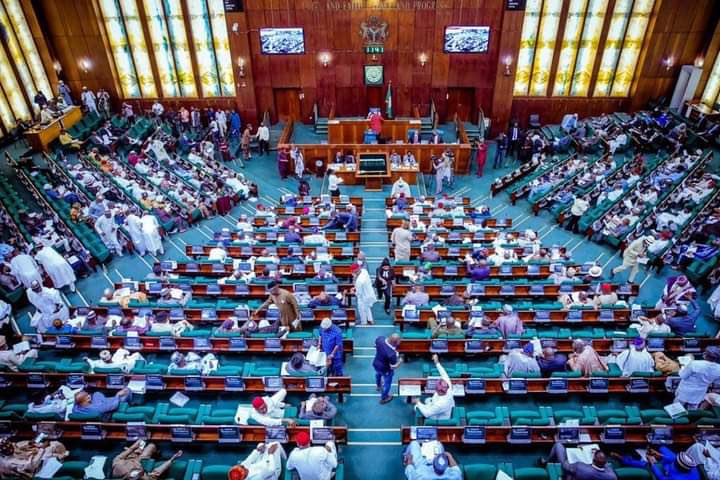
Abubakar Sulaiman, director-general, National Institute for Legislative and Democratic Studies (NILDS), says the high turnover of lawmakers in the national assembly has “hampered” the progress of the legislature.
Sulaiman spoke on Monday at the house of representatives press corps week/award ceremony held in Abuja.
The NILDS DG, who was conferred with the ‘champion of legislative development and democratic growth’ award by the corps, said the “continuous” turnover of lawmakers in every election year has a “serious” negative effect on the performance of the legislature.
According to Sulaiman, over 130 lawmakers won’t return because they didn’t win the nomination of their parties to recontest.
“Since 1999 of our practice of uninterrupted democracy, the stability and progress of the legislature have been hampered, high rate of legislative attrition,” he said.
“The continuous replacement of the significant members of the legislature after each general election cycle has serious implications for its ability to perform its role effectively. This has led to several capacity gaps in our legislative practice and procedures at both the state and national levels.
“For instance, since 1999, in both chambers of the national assembly, less than five percent of the lawmakers have been in the legislature since the return to civil rule in 1999 as compared to other democracies such as the United States where being a congressman is seen as a career and it is not uncommon to find members with over 20 years of experience in the congress.
“While a few members have crossed over from the house to the senate, only a handful of them can boast of having served up to four times in the hallowed chambers.
“Already, there is a clear indication that the incoming 10th national assembly might be worse than the previous ones. When the ninth assembly was inaugurated, there were about 215 new members, against a little over 130 old members which cut across all the political parties. Among them, the All Progressives Congress (APC) had the highest number of new lawmakers (137), while the PDP was next, with 59 members
“With over 130 members of the house already out of the contest without a nomination to contest, there are fears that the number of lawmakers that will return may further deplete. This indicates that the number of fresh lawmakers in the incoming 10th assembly house in 2023 may be higher than the last assembly,
“Legislators hardly develop an understanding of the legislative practice and procedures before they are changed. This negatively affects the legislators’ capacity in discharging their duties as some of the most experienced legislators are not often returned.
“The good thing about having experienced legislators is that they can mentor even the new ones in the course of complex legislative work and policies. It’s unfortunate that we keep on having this high turnover during every election. This has serious implications for our democracy.”
While highlighting the reasons that affect lawmakers’ chances of being re-elected, Sulaiman said the key among them is the “domineering influence” of state governors.
“A lot of reasons have been adduced for this alarming trend at the party primaries, prominent among which is the domineering influence of state governors that control party primaries,” he said.
“Thus, most legislators perceived not to be friendly or constituting a threat to the interest of the governors or their preferred candidates are usually denied party return tickets at the primaries stage. This is done by manipulating the party machinery to work against their re-election bids.
“Another potential reason is the desire of the governors to move to the legislature, particularly the senate, after completing their tenures. In this case, some of the governors worked against the incumbent lawmakers.”
As a way forward, Sulaiman said there is a need to amend the constitution to stem the high turnover of lawmakers.
Also speaking, Yahaya Danzaria, clerk of the house of representatives, said the turnover of lawmakers erodes “legislative stability and institutional memory”, adding that it increases the budget for capacity building of new legislators, manpower and competence.
“It takes a while for a newly elected legislator to master the art and act of law-making, oversight and representation, which are core responsibilities integrated therein,” he added.
In her remarks, Grace Ike, chairperson of the house of representatives press corps, said as journalists, the corps “will continue to analyse and educate” the public on the demerits of turnover as it effects the legislature.
“In the course of our reportage, we have watched with keen interest, individuals who have contributed their quota in promoting the legislative system and chose to honour them today. These individuals have distinguished themselves in building and sustaining democracy in their own way,” she added.








